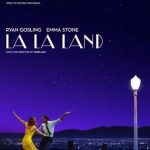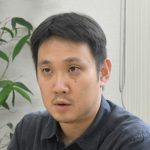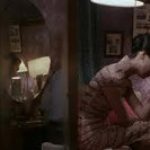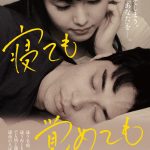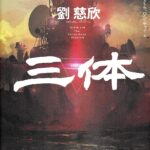Date: 2018 May 9th
Place: East Village, NYC
Interviewer: Joe Onishi
—Let’s start from your childhood. How did you start playing music?
OL: I started playing the classical piano at three and switched to cello at six. It is not
because I was interested in music. But my mom chose it for me since she believed this would set me up for a better life, and even for a higher social status. Even now in Korea, recieving a Western classical music education indicates that you belong to a certain economic class. Taking lessons and purchasing a decent instrument means your family is capable enough to support you financially, which will also lead you to a certain kind of future. Clearly, it did not work out for me as the way she expected.
My hometown is called Daejeon, which is a couple of hours south from Seoul back then by driving. When I was 12, in order to attend Yewon Arts School, I moved to Seoul and started living pretty much on my own because there was no dormitory. I suppose that made me quite independent early on.
For some odd reason, when I was 11 years old during a winter break, I took a Pansori (Korean traditional singing style) lesson. I was trained heavily in Western musical tradition and learning the Korean tradition was a totally different experience, mainly because it was taught orally. My teacher would sing me a song phrase by phrase and I had to replicate on the spot. Although I thought I was singing correctly, my teacher was not satisfied because I was “tuning” the melody according to the Western scale. It was a very informative experience indeed.
Meanwhile, I was not having such a great time with my cello teacher from age of 12 and on. He had studied in Germany with very strict teaching style that you were expected to copy the teacher as close as possible. I managed to do enough to get through, but never put my heart and soul into learning the instrument. However, when I was 17, as a part of requirement for entrance exam for Seoul National University, I had to learn Allemande from the 6th Cello Suite by Bach which was one of the rarest moments I actually felt myself connected to the music. After weeks of hard work, practicing it in a way that felt musical to me, but when I played it for my teacher, his reply was simply “It’s all wrong.” This reaction really shattered me even the tiny bit of love I had in me for that music. That’s why when I didn’t make it through the entrance exam, I was more than relieved and even told my mom giving up playing the cello anymore . For 8 months afterwards, I didn’t touch the instrument which felt great. However, when I started studying at Berklee College of Music to study “different” kind of music, I brought the cello with me to Boston because everyone was required to play an instrument for the first 2 years. For me it was the only one instrument I knew how to play.
—How was living in Boston and studying at Berklee?
OL: In a way, I totally became a different person from the first day. In Korea I used to be a very introverted person with very few friends. As soon as I started studying at Berklee, I felt very free and comfortable even though I was not speaking in my mother tongue. It was so exciting to meet so many different people from all over the world. Meanwhile, I was almost shunning my Korean identity mainly because it meant more strict social structure based on seniority which I found stifling.
At Berklee I had to educate myself very fast in Jazz. When I applied to the school, the main attraction was that this school was teaching this cool “non-Classical” music called “Jazz”. But quickly it became clear that I had totally the wrong impression of what it was. I didn’t know who Miles Davis or John Coltrane was, so when I heard teachers or fellow students mentioned names I didn’t know, I would either run to Tower Records across the street or to the school library to listen. However, it took me a while to really hear what made it great.
—Then you went on to study at New England Conservatory of Music for grad school.
OL: Yes, at Berklee I ended up majoring in Film Scoring and Contemporary Music Production since I didn’t feel completely connected to Jazz. However to film, I always had a strong connection because I had watched so many while living by myself in Seoul as a teenager, so it felt more natural. However, when it was time to go for a higher degree, it was trickier because there were only two schools in the States that offered master’s degree in film scoring, one in LA and the other one in Asheville. I just couldn’t see myself relocating to either place.
Meanwhile, this acquaintance who had started at New England Conservatory (NEC) the year before told me about this major titled Contemporary Improvisation which apparently gave its students lots of freedom. By pure luck, I was accepted and even received a scholarship which was vital because around the same time Korea was hit with IMF crisis and affected my family very heavily.
Once at NEC, again I had to start again absorbing everything that came to my way because this time I didn’t know anything about improvisation. Especially studying with Hankus Netsky helped me a lot to expand my musical horizon by threading all my musical knowledge rather than picking and choosing solely based on its styles and traditions. He also was the first person who introduced me to Klezmer music since he’s still one of the leading authorities in that tradition. Also in terms of improvisation, it didn’t follow the same stylistic restriction as in Berklee. All of sudden the definition of what jazz and improvisation were a lot more open and wide. I was encouraged to go further in playing my own instrument and create something that was beyond all the traditions I was accustomed to. Finally playing the cello was fun again and I could be my own master.
During the last semester at NEC, Dave Douglas came to NEC as a visiting artist and although I didn’t have any previous knowledge about his work but thoroughly enjoyed it during the workshop process learning his music. It came as a total surprise that I have got his complimentary of my interpretation, which was probably the first time I got that from someone whose music I really liked. That led me to again, going to the library, checking out more records with him in it that introduced me to “New York Downtown” scene.
—When was the first time you performed in NY and how was your impression about it?
OL: Just like everybody finishing music school, I had recorded a “Demo” album which I gave a copy to Dave Douglas on a visit to Tonic in New York attending one of his concerts that was apparently passed on to John Zorn. As he is known as someone who has always been open to give young people opportunities, he invited me to play his Cobra at Tonic some months later which was mind blowing. While on the stage with all these incredible musicians who were playing with such concentration and musicality, I found myself completely transformed.
—Fascinated by their musicianship or felt some kind of freedom?
OL: I think it was their musicality and musicianship because until that time feeling free through music was not enough. While playing Cobra that night, it was clear that these musicians, such as Mark Dresser, Ikue Mori, Sylvie Courvoisier, Erik Friedlander and so on, were the people who had been honing their skills in both playing their instrument and music making for decades which put them on a totally different league. They were professionals and I wanted to be one of them, not only in a sense of making a living out of playing music but centering your life around music making. I was desperate to find a way to stay in New York.
—Then, you started playing with many noted musicians/artists, for example, Christian Marclay is one of them.
OL: After relocating to New York completely in September 2000, I was lucky to meet many open minded musicians who invited me to play with them. Then a few months later I was invited to play in one of Butch Morris’ Conduction at the Knitting Factory in TriBeCa. He was also another exceptional musician and human being and playing with him led me to many other great musicians such as Christian Marclay and Vijay Iyer who are still my dear friends and collaborators.
Back then Tonic was where basically everybody just showed up to play, checking out other interesting music or just to hang. This casual atmosphere also created the feeling that everybody was treated equally and a part of a bigger community. For example, I’d started seeing this very tall guy standing in the back who turned out to be Thurston Moore. But because Sonic Youth wasn’t really a part of my growing up, although one of my brothers was very much into them, it didn’t feel extra special seeing him there. We started nodding at each other casually then maybe had some small chats but never had any formal introduction. I think it was not for another year we actually exchanged our names. A bit later he invited me to play with him which was totally fun.
Tonic was basically my lifeline back in the days.
—You are doing lots of collaboration with other artists as if you deny any musical boundaries.
OL: I’ve been very lucky to have met so many musicians from so many different areas in music.
As I mentioned earlier, Vijay Iyer is my one of dearest friends and musical collaborators. On the surface his music might sound very different from mine, but I’ve been involved with his projects for more than 15 years at this point. His understanding of what I bring in and the emotional context is very rare and precious.
Then there is Michael Gira of Swans who is also extremely open and generous. He and I definitely have similar approach in terms of intensity, I suppose. When I was on tours with Swans, I could listen to them almost every night despite the fact they played for more than 2 hours quite loudly, because of its emotional quality that felt close to me. Also, his voice and the words are very special and haunting.
Mark Fell’s music couldn’t sound more different from mine on the surface. However whenever I play with him, the sonic world he very carefully crafted through his particular logic really draw me in and let me jump deeper into something creative that makes sense. I do love synthetic sounds because it’s quite opposite from the sound that cello makes.
Playing with Bill Orcutt, I feel like my brain gets twisted and thrown into a totally different universe. Not the easiest setting but I love it precisely because of that. He is one of the most unique and again, personal musicians I’ve ever encountered and thoroughly love playing with him.
Working together for more than a decade, Marina Rosenfeld always has been someone who’s been making music that’s extremely personal and even feminine in a way that’s hard to explain other than the visceral response to her music. It’s been a very rewarding and enriching journey exploring her compositions especially because she also has this great understanding of the sounds I create through my cello and places them in different dimensions which opens doors to exciting sonic possibilities.
—How about Ikue Mori?
OL: She is one of the most original and personal musicians I’ve ever met. She is a true artist, period. Everything she does is the true presentation of who she is. When somebody is so authentic, it’s beyond your judgement. She very much deserves a lot more recognition and occupies a very special space in contemporary music.
Ikue loves working, making sounds, making videos, working on every single elements in her work. She is like this magical person who is deeply in her own special world and we are lucky to see a glimpse of her world solely through her work.
She is also one of the few female artists who has been working for a long time especially in electronic music. It would be great to find ways that her work gets presented more especially considering the fact that electronics music scene is still mostly boy’s club.
—You used to collaborate with video artists, or collaborating with visual artists.
OL: In terms of direct music to visual collaboration, I’ve done scores for Douglas Gordon last year which was really rewarding. Some other artists have used my recording to their films but hasn’t happened that much interestingly enough. I’ve done one collaboration with Takashi Makino at Rotterdam Film Festival years ago. With Christian Marclay, I’ve performed his video scores and other visual scores but we also collaborate more in playing together. We’ve been performing as a trio with Swiss drummer Luc Müller a couple of times this year. Also I’ve worked with Haroon Mirza, British visual artist working with sounds in the past.
—Could you mention about some of your favorite Korean movies?
OL: I haven’t watched that many Korean movies even though it has become rather big outside Korea. These days they are producing them almost the same scale as Hollywood which also means more commercial. I do love good tear jerker movies but sometimes they push it a bit too much to manipulate the viewers to specific responses which I do not like at all. Hong Sang-Soo is an interesting auteur although I cannot say I really love his movies. Meanwhile, there is the Korean filmmaker based in the States called Kogonada directed the movie called “Columbus” which came out last year was a really beautiful movie.
—How about your favorite Korean artists?
OL: Talking about someone who is also known outside Korea, I would have to mention Nam June Paik as one. He was truly ahead of his time and brought technology and art form together in such a personal and intriguing way. His video “Global Groove” has amazing sense of rhythm just like a great musical composition which astonished me when I watched the full video for the first time. He also brought humor and provocation into his work and how he presented them.
Speaking of Korean artist only known mostly in Korea, I’d like to mention Kim Gwang-Seok who wrote beautiful songs mainly depicting many sides of normal life, not just love ballads. Then there’s Yi-Sang who wrote very surreal poems and short stories which still sounds more than contemporary.
—So, let’s move on to “Cheol-Kkot-Sae (Steel.Flower.Bird)” then, the latest work of yours from Tzadik that included two Korean traditional musicians.
OL: That project was commissioned by SWR2 in Germany and I was given pretty much all the freedom in terms of music and players, within certain budget restriction. Bringing my Korean heritage into my practice was something I actually had done for a long time even if it wasn’t so pronounced on the surface. For the similar reason, in recent years many of my titles were in Koreans, sometimes in existing words, sometimes in made up words. So this opportunity felt like the perfect chance to bring all the elements in me and create something very personal in a long form composition. Also performing it in Germany made it easier to bring many European musicians I had developed close relationships with as well.
I met Jae-Hyo Chang who plays Korean traditional percussion in 2010 in Krems, Austria which was the very first time I worked with Korean traditional music in such a direct sense. He was extremely generous and open on top of being an exceptional musician.
Song-Hee Kwon was teaching one of my friends from New York when she went to Korea to learn how to sing Pansori. She was again very open and curious and we had a nice connection immediately.
Lasse Marhaug who plays electronics is one of the most important collaborators and dearest friend. He produced my solo album “Ghil” and brought out a totally different dimension to my solo playing. He also just released another solo album of mine “Dahl-Tah-Ghi” through his own Pica Label. Clearly, I didn’t invite him only for our personal relationship,but because he is someone who creates amazing electronic sonics ranging from massive to delicate due to his wide musical palette. Also, as a producer he added a different perspective in music making which I really appreciated and needed.
John Butcher has been clearly one of the most special musicians in creative music for a long time. His sound is so personal and even more importantly his logic behind improvising is just so intriguing and invigorating.
John Edwards is the master bassist who is extremely versatile and can fit in so many different settings in addition to having such personal and musical sound. I simply could not think of any other bassist to invite.
Ches Smith is someone I’ve been friends with for many years who is extremely open as well. He’s also someone I could trust to understand my musical ideas despite my very limited vocabulary in drums/percussion playing. Also he’s one hell of a drummer.
At one point during our rehearsals, I couldn’t figure out how to connect two sections. For almost 10 minutes I was sitting on the floor while they were all waiting for me patiently without uttering any compliments or suggestions. I was both frustrated yet extremely grateful that I got to assemble my “dream team” who gave me so much trust that I would come up with something decent in the end. To me that was the biggest award from this project.
—I feel you are more like a directing the whole album, rather than just an improviser here.
OL: This is my project that I composed. The reason why I brought in these amazing musicians was because I understood what they were bringing it to take the piece to another level. However in order to get the maximum impact, I had to create a piece that will highlight all these different elements while making sense musically to me and everybody involved.
—Talking of your performance itself, your musical judgement is so fast each time, while texture changes, when other musical elements come in.
OL: Improvising takes lots of mental energy for that reason. There are so many different layers happening at once that you have to listen and think carefully how to respond and make sense out of it all while it’s in motion. That’s what makes this music so much exciting and difficult at the same time. I consider myself as a very traditional musician despite my vocabulary being unconventional, which I see it as bridging between experimentation and making actual music. In the future I’d like to push further in terms of structures and widen my sound palette.
—Could you let us know about pickups since it seems quite an important role for your sound. And any stories with sound devices?
OL: It’s called Schertler pickup which was introduced to me when I was on a tour with Laurie Anderson. Unfortunately I don’t remember the name of the sound person who suggested it but he was German and I’m more than glad he gave me the tip because until then amplifying my cello was a nightmare.
Depending on PA and the room, I have to figure out how to amplify my cello the right way. I am reluctant to use amps because I don’t understand that world that well. I remember when I was doing a duo with Stephen O’Malley at Cafe Oto some years ago, Lasse who played the first set with me and Rhodri Davies, helped me with the amp they had for me to match Stephen’s sounds. All he did was moving around a couple of knobs but really did the trick and it was only possible because he was extremely experienced.
—What do you care about while you are performing recently, is there any specific aesthetics you have in your mind?
OL: These days I’m very much interested in site specific performances. The conventional set up of staging is really tired and not interesting to me anymore. Also I want to break both imaginary and physical boundaries between the performer and the audience in order to create different space to experiment with, not that I’m the first person to pay attention to it. Of course it doesn’t work in every single situation but I usually try to find a way to incorporate the entire space and the audience.
Also, this idea of treating cello as an analog sound making device that can be placed and moved within the space interests me. Visualizing sound in the space also can be a fun idea to explore and give the audience a chance to listen to the cello from a different perspective. On top of that I started composing solo pieces with pre-recorded materials which I had started more than 10 years earlier. I’m just trying to go to the direction that excites me.
—What makes you being successful as an artist, even you had pretty different background and you had to deal with various layers of cultural, music background.
OL: I’m not sure what it means to be a “successful artist” really, since everyone has different opinion. I’ve been extremely lucky to have met so many amazing people who were open and inspired me and I sincerely hope it will never stop. I don’t want to take myself seriously but surely take the music extremely seriously. Also growing older and having certain experiences in life add different perspectives which I cherish very much. As long as I don’t feel like I’m just repeating myself and challenging myself, I guess I can call that rather successful. However, it’s really all about the process and the experience of living it.
—Is there any plans to perform in Japan soon?
OL: It’s been a while but sincerely there will be an opportunity very soon.
Copyright © 2018 Lasse Marhaug All Rights Reserved





